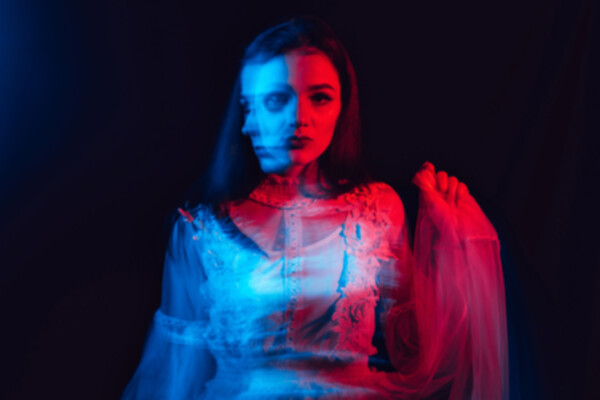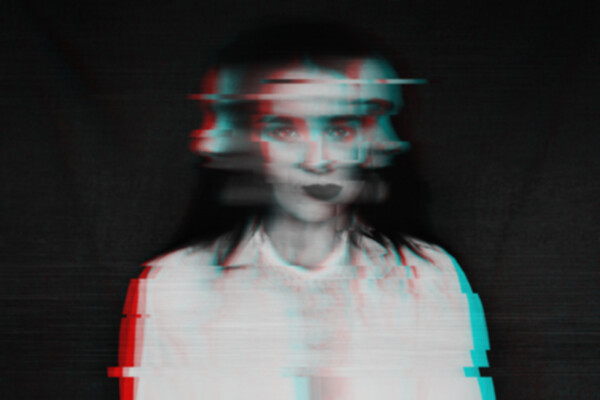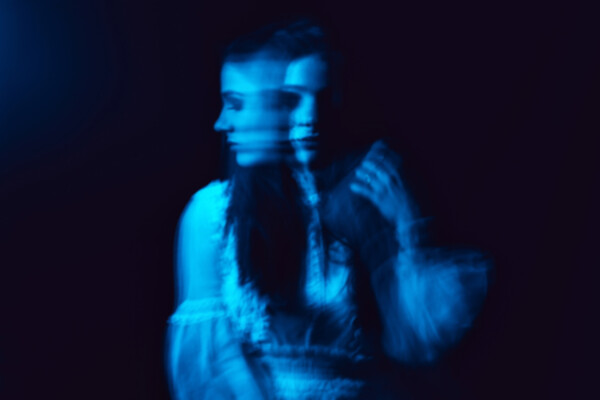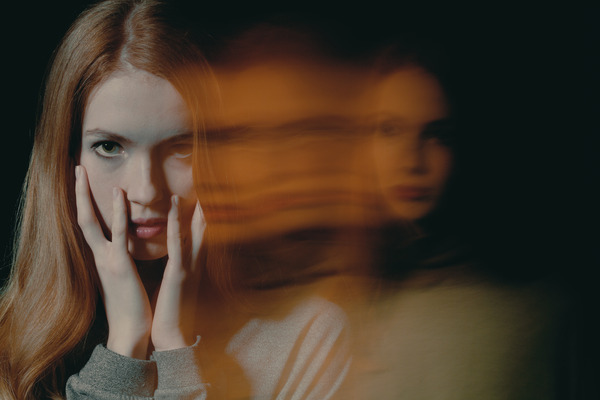What are they and what types of hallucinations exist? What is the difference between a delusion and a hallucination? Discover why we have hallucinations and their most common causes according to psychology.
The word hallucination It comes from Latin and literally means ‘mentally wander‘. Therefore, people who suffer from hallucinations often perceive non-existent objects, events or people around them as well as certain sensory experiences that are not caused by anything outside the body.
In the vast majority of cases, delusions and hallucinations They usually occur due to certain psychological disorders, such as schizophrenia or bipolar disorder. However, it is not necessary to have a mental illness to be able to feel one of these perceptual deceptions. So, what is the cause behind a hallucination?
What are hallucinations?
The hallucinations They are defined as those sensory experiences that appear to be real but are created by the minds of those who suffer them. Therefore, a hallucination can affect a person’s five senses. The most common hallucinations are hearing people talking or hearing voices in your head or seeing shadows of people.
In the vast majority of cases the different types of hallucinations They are usually caused by certain mental illnesses, by the side effects of medications or by physical illnesses such as epilepsy or even a disorder derived from alcoholism.
By having frequent hallucinations People must undergo examination by a doctor and a mental health specialist to determine the causes behind them. In this way, treatment is usually through medication and consultation with a psychotherapist.
Types of hallucinations
There are different types of hallucinations that can affect our vision, smell, taste, hearing or bodily sensations. In this way, psychologists and psychiatrists usually separate these perceptual deceptions through the following.
- Visual hallucinations: The visual hallucinations They consist of visualizing things that do not exist around us. In this way, hallucination can cause people to see objects, visual patterns, people, or lights that are not really there.
- Olfactory hallucinations: So it makes olfactory hallucinations , are those in which the sense of smell is involved. Therefore, the person may have the hallucination of perceiving odors that are not around them.

- Gustatory hallucinations: Gustatory hallucinations involve the sense of taste. In these cases, people who suffer from these types of hallucinations They feel perceptual deceptions in flavors. In many cases these individuals experience strange or unpleasant tastes.
- Auditory hallucinations: Auditory hallucinations are among the most common types of hallucinations. In this way, people can hear voices in your head who say negative things about others or about him or herself.
- Tactile hallucinations: A tactile hallucination or haptic hallucination involves the meaning of the cue. In many cases, people often feel a strange sensation when touched or a strange movement in the body. In certain cases, you may feel insects crawling on your skin or your internal organs may move. Another common haptic hallucination is feeling like someone imaginary is touching the sufferer’s body.
- Hypnopompic hallucinations: These hallucinations are usually dreams that seem real since they arise in a state between sleep and wakefulness. Therefore these hallucinations can have elements of the other types (that is, they can be visual, auditory or tactile) since they appear when a person is waking up from a dream.
Difference between delirium and hallucination
A delusion is defined as those ideas that are not real, but that people experience as if they were. On the other hand, people who suffer from hallucinations perceive or feel things that do not exist as if they were real. Therefore, the main difference between a delusion and a hallucination is that the first is a belief that the person feels and the second is a perception that is experienced.

Hallucinations: Most common causes
In the vast majority of cases, hallucinations They are mainly due to a mental health problem. Among the most common causes of hallucinations, psychologists highlight the following.
- Schizophrenia: The schizophrenia and hallucinations They are usually very related. Schizophrenia is a mental illness characterized by disordered thoughts and behaviors.
- Bipolar disorder: One of the symptoms that can appear behind bipolar disorder is hallucinations especially during the depressive phase.
- Insomnia: Insomnia or excessive sleep deprivation can also cause people to end up suffering from some of the types of hallucinations
- Drug addiction: A drugged person can suffer from hallucinations that make you hear voices or see false visions around you. In addition, continued use can cause hallucinations to spread even after the effects of the drug due to the brain changes they produce.
- Stress or anxiety: Excess stress or anxiety can lead people to suffer from hallucinations So much so that sometimes people can hear voices due to anxiety or suffer from other types of hallucinations.
- Dementia: The hallucinations In older people they can be a symptom of age-related dementia. Visual or auditory hallucinations in the elderly are usually quite common.
If you perceive that someone around you or you yourself have suffered some of these hallucinations on certain occasions, you should immediately go to a professional psychologist or your family doctor. In many cases, suffering a hallucination It is synonymous with a serious mental health illness.

How to deal with a hallucination?
If you are suffering a hallucination you can follow the following tips to face this situation and get ahead.
- Pay attention to your surroundings: Sometimes the environment can play tricks on us and cause us to have erroneous perceptions, which makes us our hallucinations are even worse. For example, having a poorly lit room or a chaotic or noisy environment can increase the chance of experiencing more hallucinations.
- Keep calm: When suffering from a hallucination It is vital to try to keep your mind relaxed and calm. This way, you can inform those around you that you are suffering from one to try to alleviate this type of situation.
- Use distraction: Depending on how serious it is the hallucination In question, it is important to try to use a distraction to leave the effects of the hallucinations behind. For example, you can use music or go to another room to try to leave the hallucination behind.
- Maintain a routine: One of the ways to try to alleviate hallucinations It is establishing a fixed routine for the day to day and following it to the letter. In addition, in this way you will be able to notice when the hallucinations occur in order to clarify, together with the psychologist or specialist, what triggers them.
A person who suffers from hallucinations It should be treated appropriately with a mental health professional. By having these interventions, the person will learn tools and techniques to combat hallucinations that challenge their mental integrity.









